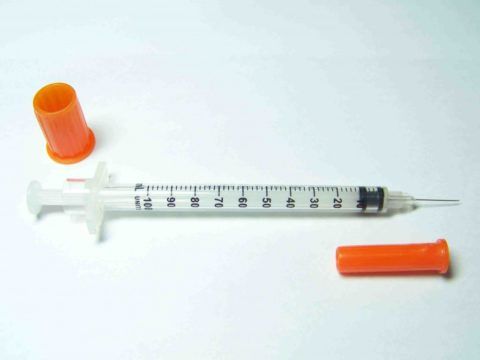The digestive system of newborns is still very imperfect. Naturally, in the first months of a baby’s life, parents observe various tummy problems.
Very often, babies suffer from constipation or dysbiosis. To help them in this situation, it is recommended to use the drug Duphalac for newborns.
Let's consider its advantages.
Why does a newborn need Duphalac?
For several weeks immediately after the birth of a baby, the number of bowel movements can reach up to 10 times per day.
But after a couple of months, this process improves and the frequency of stools is considered to be 1-3 times a day. Read the current article: How many times should a newborn have stool?>>>
- However, newborns still have some problems with their intestines, as a result of which they often suffer from constipation. This diagnosis is made if the child does not have bowel movements for 2–3 days or there are noticeable difficulties with bowel movements, when the baby strains and cries a lot, and the feces have a dense and dry consistency;
As a rule, constipation rarely occurs in breastfed newborns. This is due to the high digestibility of breast milk and the presence of beneficial bacteria in it, which stimulate digestion.
- Constipation mainly occurs in babies who are fed formula milk or breast milk substitutes. The main reasons for this problem are individual intolerance to individual ingredients in the mixture or improper drinking regimen.
Attention! Constipation is not a serious condition requiring systemic treatment.
However, if you notice your child has difficulty defecating, you should visit a doctor. Only after identifying the factors that provoke this condition will the specialist prescribe the appropriate drug. Constipation is usually a temporary condition that can be relieved by taking a laxative. Of the most popular medications of this type, it is most often recommended to use Duphalac for newborns.
This drug has a natural composition. The basis for its production is cow's milk whey. The active substance of Duphalac - lactulose - does not cause negative changes in the functioning of the child’s digestive system.
This carbohydrate, which belongs to the group of disaccharides, is not absorbed by the body.
- Being in the small intestine, it absorbs water, which leads to an increase in the volume of feces and their dilution;
- This, in turn, causes the muscles of the intestinal walls to contract;
- Once in the large intestine, lactulose serves as a breeding ground for lacto- and bifidobacteria;
- Thus, taking the drug allows you to effectively get rid of constipation and serves to prevent its occurrence in the future.
Instructions for the drug
Duphalac is a laxative with hyperosmotic and prebiotic effects. Includes:
- lactulose is the active ingredient;
- purified water is an excipient.
Taking the drug helps:
- Improving stool consistency;
- Strengthening intestinal motility;
- Eliminate constipation;
- Removing toxic substances from the body;
- Restoration of natural intestinal microflora;
- Better absorption of calcium salts and phosphates;
- Removal of ammonium ions from the body.
Duphalac has low absorption. Once in the body, it reaches the large intestine unchanged and only there is it broken down into organic acids. As a result, the acidity level decreases, which leads to increased growth of beneficial bacteria and suppression of pathogenic microorganisms.
This drug can be given to infants from the first days of life. It does not cause addiction or dehydration. Therefore, parents should have no doubt whether Duphalac can be taken for newborns. Due to its naturalness and harmlessness, this medicine is sold in pharmacies without a prescription.
Duphalac is available in the form of a transparent viscous syrup. It may be colorless or light yellow with a slight brownish tint. The drug tastes sweet.
Duphalac is sold in polyethylene bottles of 200 ml, 500 ml or 1 l. A measuring cup is included in the kit. The drug can also be packaged in disposable sachets (sachets) of 15 ml. The cardboard package holds 10 of these bags.
The shelf life of the product is 3 years. The drug must be stored at temperatures below +25°.
Why is Duphalac allowed for children?
Duphalac is a drug based on lactulose, which is obtained by heat treatment of cow's milk whey. In addition to lactulose, the drug contains only purified water. Therefore, Duphalac is a safe treatment for children.
The drug has the following effects on the child’s body:
- Liquefies stool, increases volume and facilitates their passage;
- Activates intestinal motility;
- Populates the intestinal microflora with beneficial bacteria, inhibiting the proliferation of pathogenic microorganisms;
- Helps absorb calcium salts and phosphates;
- Relieves symptoms of intoxication resulting from rotting feces in the intestines;
- Removes ammonia from the body in diseases such as hepatic encephalopathy;
- Does not irritate the intestinal mucosa and is also not addictive.
Basically, Duphalac is given to a 2-month-old baby in order to improve the intestinal microflora and eliminate stool retention. The drug does not penetrate the bloodstream, so its effect occurs only after a day or even two. In some cases, the effect may occur faster.
Indications for use
Taking the drug Duphalac helps restore the physiological rhythm of bowel movements and the formation of a favorable balance of intestinal flora.
Indications for the use of Duphalac are:
- constipation;
- dysbacteriosis;
- liver dysfunction;
- putrefactive dyspepsia syndrome;
- food infections;
- colitis;
- enteritis.
Duphalac can also be used to soften stool for medical purposes.
Often the drug is prescribed to obtain a prebiotic effect. This helps to populate the intestinal microflora with beneficial bacteria, which allows you to improve the functioning of the digestive system and get rid of constipation for a long time.
Duphalac can be used for a single dose or recommended for longer use. The drug should be prescribed to infants by a doctor.
Instructions for use Duphalac
A pediatrician may prescribe Duphalac if the baby has not had a bowel movement for more than four days and is restless and straining. If more than three to four days have passed since the last bowel movement, then it is almost impossible for a child to cope with constipation on his own. Using an enema weakens bowel function, reduces the level of beneficial microorganisms and is addictive. Along with the use of Duphalac, it is necessary to reconsider the diet of the child’s mother or choose a suitable mixture.
Reviews indicate that this drug has a quick effect and brings long-term improvement in the baby's condition. Therefore, Duphalac should be in every first aid kit for a newborn.
Indications for use of the laxative Duphalac:
• enteritis;
• putrefactive dyspepsia;
Buy sofosbuvir in Moscow from reliable suppliers verapak
• constipation;
• dysbacteriosis;
• impaired liver function.
The medicine is dispensed at the pharmacy and does not require a prescription. The drug is stored in a dark and cool place. If storage conditions are met, the shelf life of the drug is about three years.
Side effects, contraindications
The drug Duphalac has certain contraindications for use:
- intestinal obstruction, which may be associated with the presence of abnormalities in the development of the infant’s digestive system;
- galactosemia (genetic metabolic disorder);
- hypersensitivity to the components of the drug;
- lactose intolerance.
Individual selection of the dose of the drug and careful monitoring of the child’s condition is necessary if he has:
- hepatic (pre) coma;
- diabetes mellitus;
- colostomy;
- ileostomy;
- rectal bleeding of unknown origin.
Important! These diseases, which serve as a contraindication to the prescription of Duphalac, cannot be diagnosed without conducting an appropriate examination. Therefore, before using the drug, consultation with a specialist is necessary.
When you first take Duphalac for constipation, increased gas formation usually occurs in the intestines, which can cause bloating, colic, and abdominal pain. Usually these problems go away on their own within a couple of days (see how to deal with colic in the course Soft tummy>>>). In some cases, the dosage of the medication may need to be reduced to relieve these side effects.
In addition, other side effects may occur:
- Nausea;
- Vomit;
- Diarrhea (when taking too large doses), also relevant information in the article Loose stools in infants>>>
- Electrolyte imbalance (mostly resulting from diarrhea);
- Disturbances in the composition of blood electrolytes (with long-term use).
When giving a child a laxative, parents need to consider the following points:
- Disorders of the natural emptying reflex may be observed;
- Mild dehydration may occur.
Therefore, when taking Duphalac, it is recommended to give the baby additional water to drink and let him breastfeed more often. For information on how to properly breastfeed a newborn, read the article Feeding on demand>>>
Contraindications for use and side effects
Duphalac contains the active ingredient lactulose, so if you are hypersensitive to this component, you should not use this drug. Taking the drug is also contraindicated in the following conditions:
• individual intolerance to galactose;
• intestinal obstruction;
• lactase deficiency;
• diabetes;
• absorption of glucose and galactose.
Parents cannot always determine the problem of their baby’s anxiety, so self-medication often ends in failure. Only a doctor can make a correct diagnosis and determine whether a child can take Duphalac.
In rare cases, in infants who are a few days old, side effects may occur, which manifest themselves in the form of painful and cutting sensations in the abdomen, colic in the intestines, and flatulence. Side effects such as lethargy, diarrhea, arrhythmia, nausea and vomiting occur extremely rarely. The cause of side effects may be an overdose of the drug or long-term use of Duphalac. Therefore, at the first sign of side effects, you should seek help from a specialist.
How to use?
- The recommendations on how to give Duphalac to a newborn indicate that it can be taken undiluted. If your child does not like its taste, you can slightly dilute this product with water or add it to food. It is better to feed babies with syrup from a spoon or using a syringe;
- The instructions indicate that to treat constipation, Duphalac should be given to the newborn once a day. The daily norm is 5 ml. Sometimes this dosage can be divided into two doses;
- It should be borne in mind that for constipation, the laxative effect of taking Duphalac does not occur immediately, but after at least two hours. It often takes a whole day to get the result.
Know! If after 2–3 days of taking the drug, bowel movements do not occur, be sure to show the child to a doctor.
- It is better to give the drug to the baby at the same time. The most convenient period is immediately after a night's sleep or morning feeding. In this case, bowel movements will occur during the day, and at night the child will sleep peacefully;
- To avoid increased gas formation in the intestines, it is recommended to increase the dosage of the drug gradually. You should start with 1 ml and within 3 - 4 days bring it to the specified norm;
- To treat dysbiosis, the daily dosage should be less - from 1.5 to 3 ml. The course of treatment is 15–20 days, but if necessary, Duphalac can be taken for more than a month.
If there are other indications for the use of Duphalac, the dosage is selected individually after consultation with a doctor.
Important! It is not recommended to exceed the specified dosage rates. This can cause stomach pain or diarrhea in the newborn.
Doctors' recommendations
Today on the Internet you can find many opinions of parents about the drug Duphalac. Some claim that with the help of this remedy they relieved the baby from the problem of constipation, while others believe that buying this laxative is a waste of money. However, doctors explain that side effects are a consequence of violating the rules for taking the drug and the prescribed dosage, and the abdominal pain that can occur when taking Duphalac is caused by the accumulation of gases, so pediatricians recommend using the drug for colic in newborns along with a laxative.
Constipation in newborns is temporary and often goes away on its own. Therefore, you can take any laxative only after a doctor’s prescription.
Source: gepasoft.ru
Sofosbuvir daclatasvir pfobnf jn gjlltkrb
Duphalac and its analogues: which is better?
Duphalac has a more sustainable therapeutic effect compared to other fast-acting laxatives. You should know that Duphalac is not the only lactulose-based drug. You can also find drugs with similar properties on sale:
- Good luck;
- Lactulose, Lactulose Poly, Lactulose Stad;
- Legendal;
- Livolyuk – PB;
- Lizalak;
- Normaze;
- Portalak;
- Romphalac.
These drugs have approximately the same therapeutic effect. Differences may lie in the presence of other excipients, release form and manufacturer.
Also, the price of analogue drugs differs from how much Duphalac costs. Its average cost is 300 rubles. (volume 200 ml), while other products cost from 67 to 215 rubles.
Reviews from moms
The effectiveness of the drug Duphalac is confirmed by numerous positive reviews of its use.
Unfortunately, my daughter has been bottle-fed since she was two months old. This affects the functioning of the intestines, and the problem of constipation arose with us quite often. At first I didn’t want to use medications and tried to help the baby with enemas and special gymnastics - the effect was purely situational, and after a couple of days everything happened again. Our pediatrician convinced me to give Duphalac. After 2 weeks, the constipation problem was solved! I didn’t change anything in my daughter’s diet.
I have known Duphalac for a long time - I used it when my eldest son was diagnosed with dysbacteriosis at 6 months of age. This drug helped very well and after just one course of taking it, tests showed that everything had improved. Now my daughter is one year and three months old. Duphalac has already come in handy for her - constipation arose when introducing solid foods. A very effective remedy!
When my child had problems with constipation, my sister advised me to give him Duphalac. After reading the instructions, I was very glad that it has a natural composition and this drug is harmless to infants. I’ve already given it to my son twice – there were no side effects, and the results came very quickly.
Such opinions confirm the high effectiveness of the use of Duphalac. However, it should be borne in mind that this drug, like other laxatives, does not eliminate the cause of constipation. It serves as an effective medicine for situational relief of a child with problems with defecation and helps in the formation of intestinal microflora. Duphalac should be considered as an adjunct that will help the intestines work independently.
Constipation in children
Doctors say that constipation is a slow or absent bowel movement for a day or more. But in this case it all depends on the baby’s age and nutrition.
For example, in children under one month, the number of bowel movements directly depends on food intake. For bottle-fed children - up to three bowel movements.

A nursing mother should pay attention not only to how many times her child went to the toilet, but also what the stool looked like, what color and smell it had. In infants, stool is semi-liquid and yellow in color. If a child is fed formula milk, the stool will have a different smell and the consistency will become thicker.
You can tell if your child is developing constipation by the following symptoms:
- the child becomes restless, tries to push, but the intestines do not empty;
- making attempts, the child begins to move restlessly and cry;
- there is no bowel movement for a day or two;
- the baby does not sleep well, there may be no sleep at all;
- hard tummy, flatulence;
- knees constantly pull towards the stomach;
- Vomiting may occur.

Constipation can occur because the child drinks little fluid or the nursing mother does not eat properly. Defecation may be disrupted even after new foods have been introduced into the child’s diet, which is why pediatricians advise doing this gradually each time, observing the body’s reaction.
Why give Duphalac?
With diarrhea and colic in newborns, mothers do not know what to do and what medications can be given. In a normal state, a newborn baby can have bowel movements up to ten times a day and this is not considered a pathology at all.

Several months will pass and the bowel movement process will begin to regulate, now the frequency of bowel movements will reach up to three times a day.
But what happens:
- Problems in the functioning of the intestines may remain, and it is because of them that the child will suffer from constipation. A doctor can make such a diagnosis when the baby cannot go to the toilet for two or more days. At the same time, each time he will push hard and cry, and the consistency of the stool will be dry and hard. In those children who are breastfed, constipation is not common. This is explained by the fact that along with mother’s milk, the body receives everything it needs, including beneficial bacteria that stimulate digestion.
- Those babies who are fed formula milk are more likely to suffer from constipation. The body may not tolerate individual components in the mixture.
Dosage for a child at 2 months
Despite the fact that the drug has a safe composition and has a beneficial effect on the body, it, like other drugs, has contraindications and side effects. Therefore, before giving Duphalac to a two-month-old baby, consultation with a specialist is required.
The pediatrician will select the optimal dosage depending on the child’s weight, duration of constipation or degree of dysbiosis. The doctor will also assess the baby’s general condition and analyze the medical history for the presence of concomitant diseases.

For the treatment of dysbiosis, a dosage of 1.5 - 3 ml of the drug is usually prescribed. In this dosage, Duphalac is used once a day.
In order to eliminate constipation, a two-month-old child is given 2.5-5 ml of the drug per day. This technique is usually divided into 2 times. In this case, on the first day, 1 ml of the drug is given, then the child’s reaction is observed. If there are no symptoms of flatulence, then the amount of the drug is increased to the prescribed dosage. This way, the side effect of increased gas formation can be avoided.
The maximum daily dosage of the drug is 5 ml. If this dose is exceeded, diarrhea and spasms of intestinal smooth muscles may occur.
Rules of application
The instructions state that the drug can be taken by children of all ages. The medicine is taken orally, that is, inside. How much Duphalac to drink and other points is determined by the doctor.
But there are also general admission rules, which include:
- the drug is taken systematically, if you miss a dose, the effectiveness will decrease;
- the mixture is diluted with water, in what proportions the doctor will tell you to do this;
- Children up to one year old are given the drug once, older children twice;
- The volume of fluid consumed while taking a laxative should be increased.

The duration of action after taking it lasts for a long time; some people completely forget about the problem for several months. The pediatrician should tell parents in more detail about the rules of admission.
Dosage for newborns
Question: “How to give Duphalac to a baby at 1 month and at 2 months?” undoubtedly worries many parents.
Interesting! Before taking the drug, the baby should be examined by a pediatric gastroenterologist.
If parents carefully follow the instructions and observe the dosage, there will be no negative reactions.

For babies, syrup is often given in its pure form, but if necessary, it can be diluted with breast milk or warm boiled water. Pediatricians recommend giving the drug in the morning on an empty stomach.
The dosage in the first year of life is as follows:
- If constipation occurs, the drug is given three times, one milliliter. In order to normalize the state of microflora - one and a half milliliters once a day.
- To eliminate dysbiosis - up to three milliliters per day.
If you give the full dosage at once, babies may develop methiorrhiza. How long can you take Duphalac? If the drug does not help the baby after seven days of use, it is recommended to stop treatment and consult a doctor.
Nursing mothers should closely monitor their diet throughout the entire treatment period. Avoid all foods that can cause gas. Otherwise, the child's condition will worsen.

Interesting! If chronic constipation occurs, the child is transferred to artificial nutrition. This way you can restore the chair.
How long does it take for Duphalac to work in children? As practice shows, the drug begins to act within the first hour, in rare cases after a day.
Treatment after a year
For children aged one year or more, the dosage of the drug changes, it looks like this:
- from one to five years, 5-10 milliliters are given per day;
- for children after six years, 10-15 milliliters.
To restore normal microflora, children after two years of age are given three milliliters of medicine per day. After four years, the dosage increases to five milliliters.
Pediatricians advise giving syrup in the morning before tomorrow or immediately after it. After completing the course of treatment, constipation disappears, and the intestines begin to function fully.
How to avoid pain
It is easy to prevent a negative reaction of the drug to the body. It is necessary to follow all doctor's recommendations and maintain the correct dosage. Many experts point out the importance of the time period for use and the time of day at which the drug is drunk.
You need to pay attention to the correct use of the medicine. The syrup should be consumed:
- the first dose should consist of a dosage of 10-45 ml, depending on the age of the patient (in subsequent times the dose is increased);
- Do not use a laxative at night, only orally in the morning after waking up (on an empty stomach, while eating);
- the maximum dose for children under 14 years of age should not exceed 15 ml, for infants - 5 ml per day;
- for an adult, the dosage of Duphalac can be divided into several times, but only in agreement with a physician;
- take into account contraindications for use;
- Do not increase the dose yourself if the medication does not work.
Note! If the patient forgot to take the medication, more than 4 hours have passed from the regular time of administration, it is better to postpone the use of Duphalac the next day, which will prevent the occurrence of adverse reactions, including abdominal pain.
Experts advise not to panic if a child or adult experiences mild pain on the first day of using the product. Unpleasant symptoms may appear as a result of the accumulation of feces, their gradual softening and removal.
Precautionary measures

Despite its effectiveness, the drug may not always be used.
The following contraindications apply to infants and older children:
- hypersensitivity to the components included in the composition;
- blood is released from the anus, its origin is not related to hemorrhoids;
- galactose metabolism is impaired;
- exacerbation of appendicitis;
- intestinal obstruction.
Children with diabetes can take the medicine, but under the strict supervision of the attending physician.
Interesting! The first time after treatment, gas formation increases, but the condition normalizes on its own within the first two days.
If the dosage is violated, side effects may occur, including:
- the appearance of muscle pain;
- headache;
- muscle spasms;
- diarrhea and vomiting;
- the appearance of abdominal pain.
To eliminate such symptoms, it is necessary to adjust the dosage of the drug.
Remember that the drug eliminates the symptoms of constipation, but not the causes of it. The medicine is effective, it improves the child’s condition, normalizes intestinal function, but in order to no longer encounter symptoms of constipation, the causes of its occurrence must be found and eliminated.
Frequently asked questions to the doctor
Drug and alcohol
Are Duphalac and alcohol compatible?
You should take the syrup with caution when you are under the influence of alcohol. The thing is that lactulose, which is part of the medicine, increases the level of red blood cells in the blood, which can result in thrombophlebitis. It's not safe, especially in this condition. That is why most doctors categorically do not advise combining the drug and alcohol.
Action in adults
How quickly does Duphalac act on an adult?
According to the instructions, an adult can observe the effect of the drug after 12-24 hours. As the dosage increases, this time may be reduced. However, it can be increased only after consulting a doctor.











